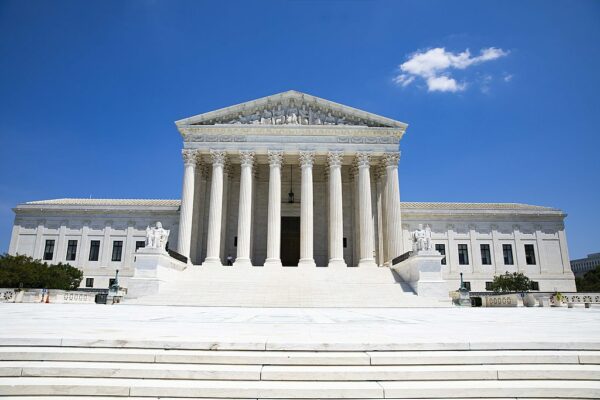The Supreme Court on Monday reportedly handed a victory to the Trump administration, lifting restrictions on immigration enforcement in Los Angeles and allowing federal agents broader latitude to conduct raids in the nation’s second-largest city.
In a brief, unsigned order, the justices granted the administration’s emergency request to overturn limits imposed by a federal judge who had concluded that agents were likely engaging in racial profiling.
Government lawyers argued that the restrictions hampered immigration enforcement in a high-priority metropolitan area with a significant population of individuals residing in the country illegally.
Justice Brett Kavanaugh issued a concurring opinion, defending the administration’s approach as both practical and legally sound. “It is common sense,” he wrote, “and consistent with court precedent for federal officers to conduct immigration checks in parts of Los Angeles where violations were most likely, such as where day laborers gather looking for work.”
Kavanaugh stressed that lawful residents and citizens would not be harmed by such efforts. “If the person is a U.S. citizen or otherwise lawfully in the United States, that individual will be free to go after the brief encounter,” he noted.
The court’s three liberal justices dissented, with Justice Sonia Sotomayor writing that Americans “should not have to live in a country where the Government can seize anyone who looks Latino, speaks Spanish, and appears to work a low wage job.”
The dispute traces back to a July order by a federal judge in Los Angeles, who temporarily blocked federal agents from detaining individuals based solely on whether they looked Latino, spoke Spanish, or worked in industries such as landscaping or construction.
The plaintiffs, a coalition of immigrant-rights organizations and Latino residents, argued they had been unfairly targeted at bus stops, carwashes, and other gathering places.
The Trump administration countered that the judge’s order prevented agents from using reasonable indicators to identify potential immigration violations.
U.S. Solicitor General John Sauer told the Court that factors such as language and type of employment could not be dismissed outright. “No one thinks that speaking Spanish or working in construction always creates reasonable suspicion,” Sauer wrote. “Nor does anyone suggest those are the only factors federal agents ever consider.
But in many situations, such factors—alone or in combination—can heighten the likelihood that someone is unlawfully present in the United States.”
Plaintiffs’ lawyers defended the lower court’s injunction as a safeguard against government overreach.
They contended that the administration was seeking the Court’s approval for what they described as a “dragnet” that could entangle millions of Latinos who are in the country legally.
Attorney General Pam Bondi praised the Supreme Court’s action, calling it a necessary correction. “Now, ICE can continue carrying out roving patrols in California without judicial micromanagement,” she said in a statement on X.
The ruling underscores the Trump administration’s broader push to restore aggressive immigration enforcement policies.
Further proceedings in the case are scheduled for September, but for now, federal agents have been given renewed authority to target illegal immigration in Los Angeles — a move conservatives say puts the rule of law ahead of political constraints.
[READ MORE: Washington D.C. Sues Trump Over National Guard Deployment as Crime Declines]


